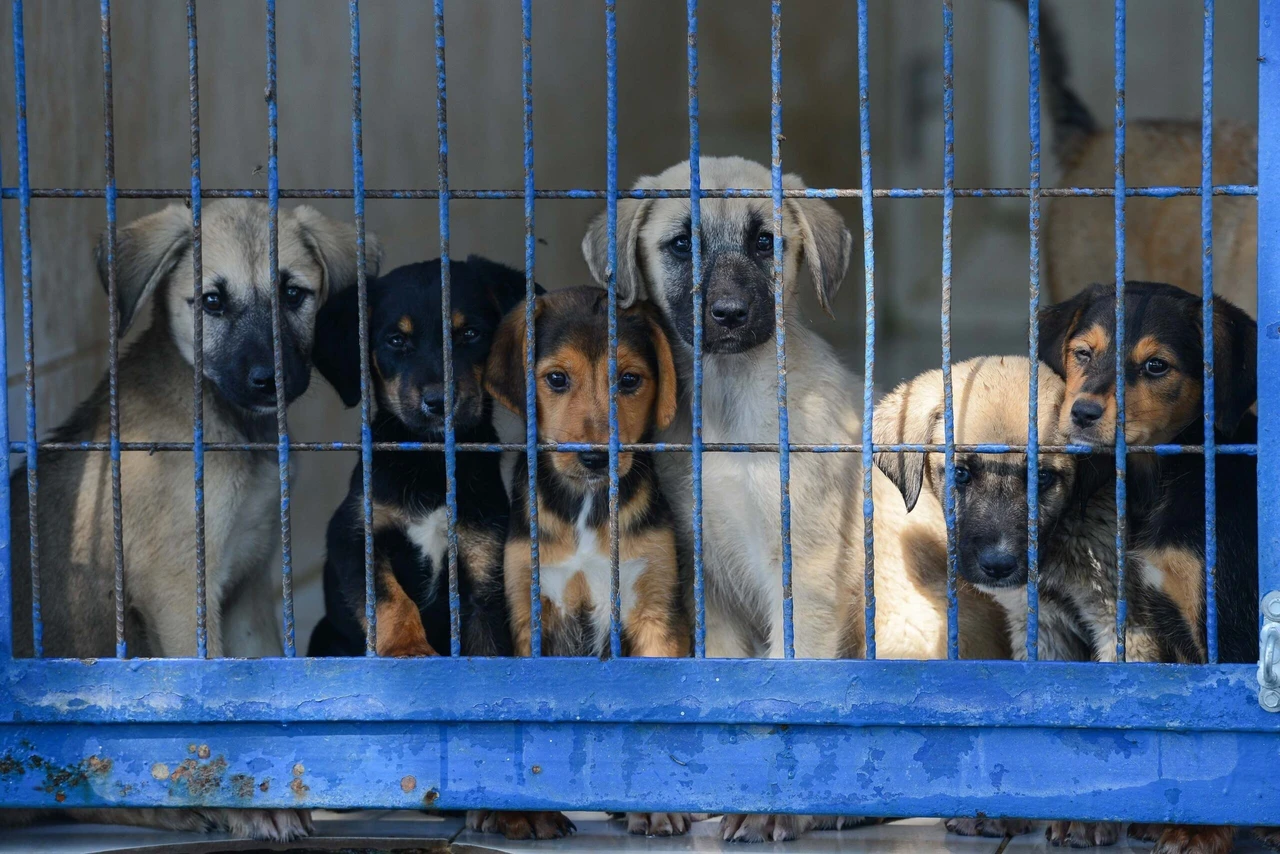Turkish Parliament passes stray animal law amid fierce debate
 Stray dogs look out from a cage in an animal shelter, in Bursa, northwestern Türkiye, Aug. 7, 2022. (IHA Photo)
Stray dogs look out from a cage in an animal shelter, in Bursa, northwestern Türkiye, Aug. 7, 2022. (IHA Photo)
The Turkish Parliament has passed a landmark “Law Proposal for Amending the Law on the Protection of Animals,” representing a major step forward in the country’s approach to stray animal welfare.
The proposal, debated into the early hours, includes 17 approved articles and introduces several key changes.
During the extended discussions, which lasted until about 2:30 a.m., CHP Chairman Ozgur Ozel actively participated. Other opposition members voiced their objections to the acceptance of the proposal.
All 17 articles of the proposal were adopted, and the final vote saw 500 out of 594 MPs in attendance. Of those, 275 voted in favor, 224 voted against, and one MP abstained.
Meanwhile, CHP leader Ozel announced plans to challenge the law in the Constitutional Court, seeking a stay of execution.
‘Euthanasia’ term removed
During the discussions in the Turkish Parliament’s Agriculture, Forestry and Rural Affairs Committee, the fifth article was accepted with an amendment proposed by the ruling Justice and Development Party (AK Party).
The term “euthanasia” was removed from the proposal, but the law still permits the killing of stray dogs under the Veterinary Services Law.
Revised Article 5: The article requires that measures from the Veterinary Services Law be applied to dogs with severe health risks or uncontrollable behaviors. Local authorities must also adhere to the European Convention guidelines for managing stray dogs.
Key provisions of new law:
- Euthanasia restrictions: The new law prohibits euthanasia of animals in shelters except in specific circumstances where animals pose a risk of severe suffering or health threats. Euthanasia must be performed by a veterinarian or under their supervision.
- Clear definitions: The law defines “owned” and “unowned” animals, requiring registration in the Ministry of Agriculture and Forestry’s database for owned status. It eliminates the “catch-neuter-release” method and revises shelter definitions to focus on housing and rehabilitation.
- Local government responsibilities: Local governments are tasked with establishing animal shelters and collaborating with voluntary organizations. Sheltered animals will be registered for accurate tracking. Abandoning stray animals collected by authorities or leaving animals in shelters outside is prohibited.
- Expanded support: The Provincial Animal Protection Boards are now responsible for addressing stray animal issues and ensuring human, animal, and environmental health. Support for shelter establishment and maintenance has been expanded, with financial aid provided by the ministry.
- Increased penalties: Fines for abandoning animals have been significantly increased, and misuse of funds allocated for animal welfare can result in imprisonment for municipal officials. Mayors and council members must allocate 0.5% of their confirmed budget revenues for animal care, with a deadline to establish or improve shelters by Dec. 31, 2028.
- Registration requirement: Pet owners must register their cats and dogs by Dec. 31, 2025, using digital identification methods. The role of “local animal protection officers” is removed to streamline animal protection efforts.
The law represents a robust framework for improving the management and welfare of stray animals in Türkiye, with a strong emphasis on humane treatment and increased accountability.
322 shelters for 4 million dogs
During a General Assembly session, Vahit Kirisci, chairman of the Agriculture, Forestry, and Rural Affairs Committee, provided updates on animal welfare efforts. He reported that from 2004 to 2023, a total of 2,504,595 dogs were sterilized, 2.85 million were vaccinated, and 533,004 were adopted. Kirisci also disclosed that there are currently 322 shelters with a combined capacity of 105,000 animals.
Addressing concerns about accommodating 4 million dogs in shelters with a 105,000-animal capacity, Kirisci explained that the deadline for completing the shelter construction process is set for Dec. 31, 2028.
He noted that once the new law takes effect, municipalities will have four years to allocate the necessary budget and complete the construction of additional shelters.



